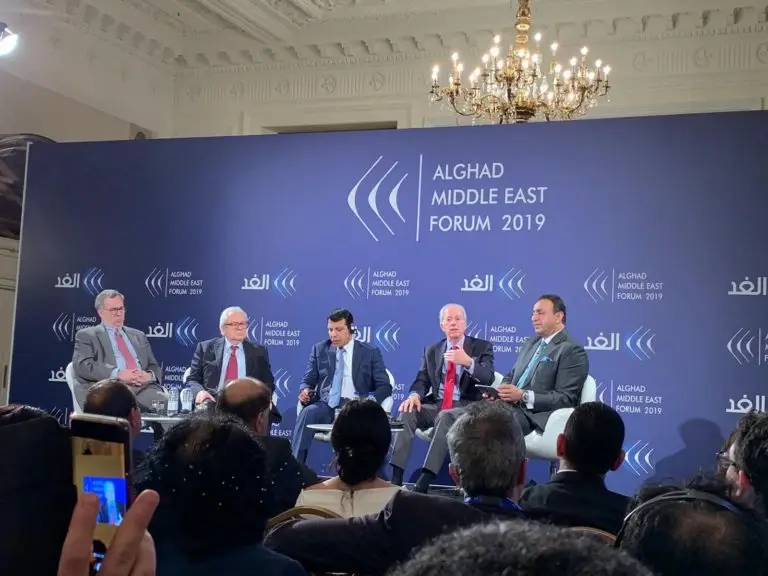The Israeli-Palestinian conflict is one of the longest enduring in international relations. At its core, it’s a conflict fuelled by two differing efforts towards self-determination, Israeli Zionism and Palestinian nationalism, but it’s a conflict that is, in reality, much more complex and requires nuanced negotiation. This intractable struggle, which has seen both a long-term peace process and ongoing violence, has also proved difficult for world leaders, particularly in the United States, to mediate. Presidents Jimmy Carter, George H.W. Bush, Bill Clinton, George W. Bush, and Barack Obama all made efforts to secure peace, so it was expected that Donald Trump would pick up the mantle during his presidency.
Enter the “deal of the century”, Trump’s own boisterous assessment of his Middle East peace plan. Presented as the “ultimate deal” for Israelis and Palestinians, Trump’s plan has, thus far, bended to the will of the Israeli right, and received vocal condemnation from Palestinian leaders who reject him as a dishonest broker.
Last week, PLMR supported Alghad TV during its relaunch of the Alghad TV Middle East Forum 2019, which lead discussions on Trump’s deferred peace plan for the Middle East. The panellists, comprised of former diplomats and leaders, joined us for the evening to share their experience of the peace process and provide their unique insights into the political challenges facing Israel and Palestine.
Not surprisingly, in assessing Trump’s plan, the panel, comprising of Ambassador Dennis Ross; Palestinian politician, Mohammad Dahlan; former Senior Diplomatic Interpreter and Special Advisor to the US, Gamal Helal; and Director of the Project on Arab-Israel Relations, David Makovsky, agreed that the “deal of century” was not an accurate expression. At best, according to Mr Helal, the ambiguity of Trump’s deal prompts questions that seek to determine whether its goal is to manage or resolve the conflict, fulfil a campaign promise, or something else entirely. Additionally, the panel added that this lack of precision not only makes it premature to espouse judgement but also reinforces peoples’ worst interpretations and scepticism of US involvement in fostering peace in the Middle East.
Pairing this with a legacy of little progress led to questions from the audience regarding the role of the US and its relevance in achieving peace in the region. To this, Ambassador Ross commented that the US is the most qualified broker for peace, but that the US alone is not enough – as the “heart” of the Arab world, and with its success in bringing Israel to the table, Egypt, must also be an anchor to any deal. Questioning the morality and ability of the current US administration, the panel contended, to the disapproval of much of the audience, that honesty, while important, should be secondary to effectiveness and that what is required is a foreign policy that is willing to address the conflict. Mr Makovsky continued by pointing out that this willingness is necessary to escape a policy of avoidance that is destined to result in increased displaced persons and violence.
So how will peace be achieved between Israel and Palestine? This was a recurring theme throughout the discussions, with the panellists all determining that while a critical eye is needed for any peace treaty, self-reflection is also key. This was particularly the case with reference to the one-state versus the two-state solution. Trump’s proposed deal and apparent Israeli favour has the US drifting towards a one-state solution. However, with two national identities at stake, in a region rooted in historic, cultural, and national importance, a more effective plan would be to persevere with a two-state solution and create an independent Palestinian state alongside Israel. As recent history has shown, allowing free national expression is an important aspect in preventing conflict from turning inwards, as was the case in Lebanon, Syria, and Iraq.
Mr Makovsky said that whilst a solution to peace will need to address borders, the security arrangement, Jerusalem, and the displacement of refugees, addressing all five areas is too ambitious. He stated that failed attempts have created a loss of faith among the people of Israel and Palestine and have instilled a disinterest in their leaders, Mahmoud Abbas and Benjamin Netanyahu, in coming to the table. This was supported by Mr Dahlan who encouraged his fellow Palestinians to uphold their determination to realise their rights, but with continued patience. In this vein, he critiqued the apparent urge to race towards failure given that the risk extends beyond failure in and of itself, to the escalation that follows. Mr Helal also shared this view and turned his attention to the process rather than the final outcome, saying that negotiations should not focus on immediate peace but instead, a hopeful process.
To this end, nurturing hope is of the utmost importance and smaller, more realistic goals should be prioritised to transform what is perceived as empty rhetoric into successful action. What the panellists did all agree on was the necessity for a shift in mentality, and a negotiation process that makes clear that deferring an issue does not equate to conceding an issue. With these smaller steps, the road towards the shrinking of the conflict can begin and, in an idealist’s mind, eventually lead to peace within the Middle East.




